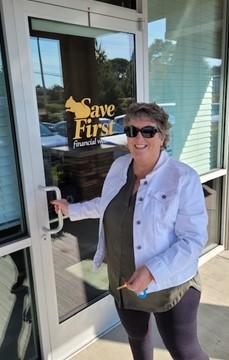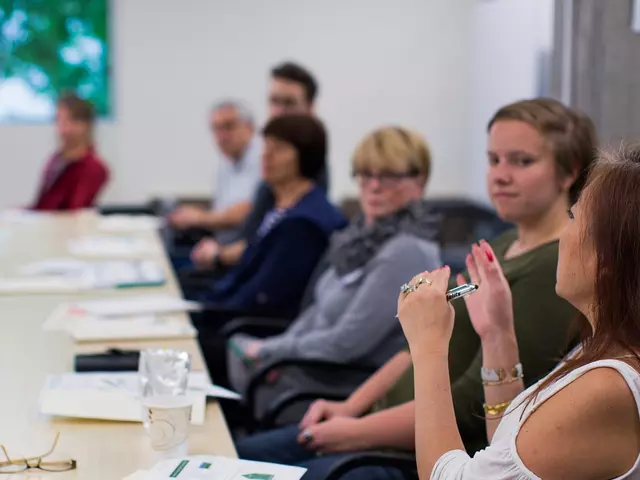Save First Financial Wellness Turns Shutdown into a Springboard
Save First Financial Wellness (Save First) began as a workplace financial stability initiative incubated by, and as part of, Catholic Charities of Oregon. When shifting organizational priorities resulted in an unexpected program shut-down, Executive Director Molly O’Donnell and team turned a challenge into an opportunity, blazing a new trail to turn the program into a standalone organization.

Launched in 2009, Save First initially provided emergency financial assistance to healthcare employees in Portland, Oregon. The initiative evolved under Molly’s leadership to include one-on-one financial coaching, resource navigation, consumer advocacy, financial education classes, and a vetted and highly trained volunteer network to assist in program delivery. At the height of the program, Save First served over 3,600 clients in a single year, roughly half from employer partners, distributing over two-million dollars in aid across seven employer partners and multiple housing authorities.
In 2023, organizational changes within Catholic Charities led to the closure of Save First. However, the program’s proven impact inspired the Lighthouse Financial Foundation (Lighthouse)—a group of retired financial professionals—to support its continuation as its own, independent organization.
Recognizing Save First’s value, Lighthouse provided funding and, in collaboration with Catholic Charities, helped secure its intellectual property (including its website, digital assets, data, etc.), enabling a swift relaunch as an independent nonprofit. Just weeks after closing, Save First reopened, retaining its name, curriculum, and key staff, while reestablishing contracts with employer and housing authority partners.
The program’s ability to emerge stronger after such a significant disruption offers practical guidance to programs experiencing unpredictable setbacks that can occur within any organization.
“It really was one step at a time. You cannot get caught up in what could have been. Just start with the basics and get the work done.” – Molly O’Donnell, Executive Director

When asked to provide tips for other programs that may find themselves navigating transition and/or program setbacks, Molly and her team offer the following guidance:
- Preserve and nurture relationships. While the program’s closure was beyond the staff’s control, the team focused on maintaining open, transparent communication with corporate and community partners. This relational groundwork paid off, allowing Save First to quickly re-engage two healthcare employers and four housing authorities upon reopening.
- Adapt and remain mission driven. The new Save First model prioritizes community-centered service delivery, locating offices in zip codes with the greatest need and collaborating with local service providers, such as food banks. In the first five months post-relaunch, the team served over 800 clients (nearly half from workplace contracts), while simultaneously rebuilding operational infrastructure.
- Extend impact through shared resources. When developing curriculum or training materials, think beyond your organization. High-quality resources—like workbooks and train-the-trainer guides—not only strengthen your local impact but also create opportunities to support peer organizations with fewer resources. By sharing what works, especially during times of transition, you can extend your influence and fill critical gaps in the field.
- Stay focused on infrastructure. From legal transitions to rebuilding systems like Salesforce and donor databases, the team has been methodical in sequencing efforts—prioritizing internal capacity before expanding.
- Re-engage community supporters. Former volunteers offered to assist during the relaunch, helping with tasks ranging from cleaning office spaces to identifying outdated branding on the website. This kind of community-driven support underscored the program’s deep roots and long-term impact.
Save First’s vision for the future includes continuing to improve services for small and medium-sized businesses, launching an employer-sponsored small-dollar loan product in partnership with a local credit union, and offering a packaged curriculum to nonprofits with similar missions to extend reach. With a growing presence in both Oregon and Southwest Washington, Save First is poised to scale its impact through both direct services and technical assistance.
